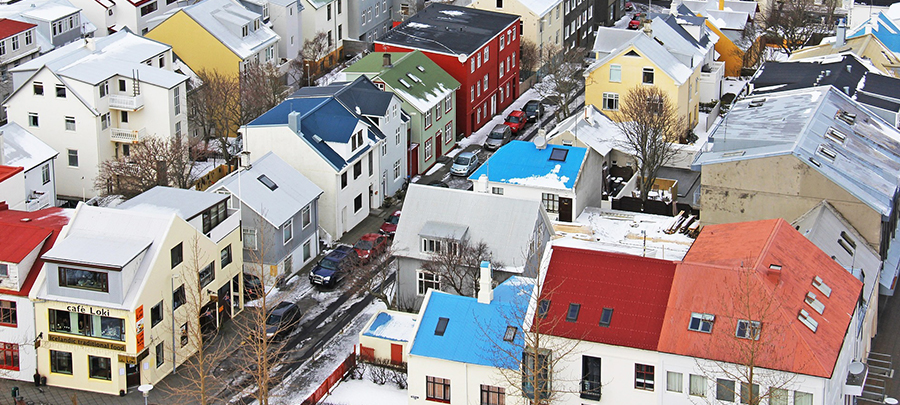

Iceland is a small market, with most of the population concentrated around the capital Reykjavik, which features a strong economy and a tourist industry that depends heavily on imports, especially in the food and beverage sectors. With an import value of US$81.57 million in beverages and a GDP of US$25.96bn in 2019, the Icelandic market is worth taking into consideration by alcoholic drinks exporters looking to expand in Northern Europe.
A period of prohibition
Iceland’s history with alcohol is quite interesting, as the country went through a period of prohibition that went into effect in 1915 and lasted, to some extent, until 1 March 1989 (celebrated as “Beer Day”).
The ban had originally prohibited all alcohol, but from 1922 Iceland legalized wine and a few years later, in 1935, it also legalized all the other alcoholic beverages with the sole exception of beer with more than 2.25% alcohol content.
The country’s prohibition had deep political roots. In the case of beer, for example, the ban was fueled by Iceland’s fight for independence from Denmark, a country that Icelanders strongly associated with beer. Later on, the ban was maintained for more practical reasons, as the officials thought that the low price of beer, compared to the other drinks, would lead to high consumption that will fuel alcoholism.
Alcohol Monopoly
Like other countries with long winters and colder climate, Iceland has also been struggling to fight alcoholism and, as others, using a monopoly system for alcohol sales was the option to go. In the country, all beverages with an alcohol percentage over 2.25 percent are sold through the state monopoly Vínbudin /ATVR. ATVR manages the Vínbudin chain which, with 51 national stores, operates as the only alcohol retailer in Iceland.
Sales via the monopoly represent over 70 percent of total sales and are among the most heavily taxed in Europe. Alcohol taxes are levied by alcohol volume. As an example, a bottle of Dom Perignon brut that is sold through Sweden’s Systembolaget for approx.. 138 EUR will sell in Iceland for 168.5 EUR.
The remaining sales are generated via foodservice outlets or via duty-free shops in Iceland. The latter is very popular among Icelanders for economic reasons. Bars, restaurants, and hotels can only sell alcoholic drinks if they have an alcohol license.
Also, advertising of all alcoholic beverages over 2.25 percent alcohol by volume is prohibited by the Alcohol Act.
Things might change however and despite the support for the monopoly from a large part of the population, there have been a couple of “alcohol bills” that have seen heavy debates in the Icelandic Parliament recently.
An excellent source for data on the Northern monopolies, including pricing, tax rates, and the sales networks can be found here.
Wines
Total wine imports in Iceland in 2019 totaled 23.3 million EUR and the majority of the imports came from Italy, France, and Spain, but wines from Lebanon, Chile and U.S. are have also gained popularity. Consumers have a preference for Italian and French wines mostly because of their perception of high quality. The U.S., on the other hand, has only a 2% share of the market.
The most popular wines in Iceland are red and rose – red wine reaching 1.9 million liters in sales. The demand for white wines is significantly lower, as they represent only one-third of sales.
Other trends that are present in the Northern countries are also visible in Iceland. A shift towards premium wines, organic/ bio wines and even alcohol-free wines is ongoing.
Iceland and Reykjavík especially has a number of excellent wine bars, with extensive wine lists. Port 9, Klaustur and Krost are some of them.
Beer
Nowadays, beer is the most popular drink in Iceland and it even got its own celebration: “Beer Day”, on 1 March, following the end of prohibition.
Between 1989 and 2007, per capita liquor sales decreased by nearly half while per capita beer sales more than doubled. More than 60% of the total of pure alcohol consumed by Icelanders is now represented by beer, which is even higher than in some countries with strong beer traditions. Imports of beer made from malt reached 8.15 million EUR in 2019.
Ironically, even though Iceland now has a number of beer breweries, the country still relies on imports and Denmark is a top supplier, especially of beer made from malt, just under Belgium. Netherlands, UK, Czech Republic and Germany are also major beer exporters to the region.
Spirits
Iceland’s import of spirits reached 7.2 million EUR in 2019 and the top 5 suppliers were UK, France, Italy, Germany and Ireland.
Whiskey is a favorite among Icelanders and the importers are increasing their efforts to get more Kentucky whiskey into the market. There has also been an increased demand for different kinds of bourbons amongst Icelanders.
The consumption of stronger alcoholic beverages is on a downward trend however, and is estimated at around 0.3 liters per capita.
Three wine, beer or spirits importers and distributors from Iceland:
Globus Hf
Address: Skútuvogi 1f, Reykjavík
Phone: 003545222500
Website: http://www.globus.is/
Mekka Wines & Spirits
Address: Köllunarklettsvegi 2, Reykjavík
Phone: 003545595600
Website: https://www.mekka.is/
Alvin Nordic Associates Ehf
Address: Nethyl 2b, Reykjavík
Phone: 003546947384
Website: http://alvin.is/
Producers interested in the Icelandic market can find a database with top wine, beer and spirits importers, distributors and retailers here.





